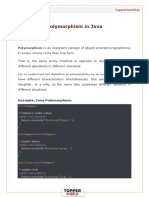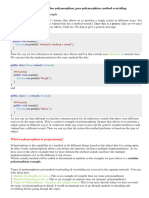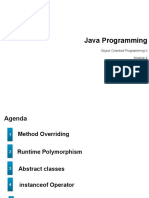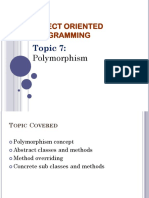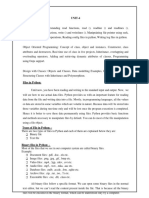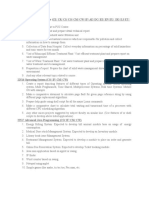0% found this document useful (0 votes)
85 views14 pagesUnit I - Polymorphism
The document discusses polymorphism in object-oriented programming. Polymorphism allows the same message to be interpreted in different ways depending on the object that receives it. There are two types of polymorphism - compile-time polymorphism achieved through method overloading, and runtime polymorphism achieved through method overriding.
Uploaded by
RUDRAKSHI SAWANTCopyright
© © All Rights Reserved
We take content rights seriously. If you suspect this is your content, claim it here.
Available Formats
Download as PDF, TXT or read online on Scribd
0% found this document useful (0 votes)
85 views14 pagesUnit I - Polymorphism
The document discusses polymorphism in object-oriented programming. Polymorphism allows the same message to be interpreted in different ways depending on the object that receives it. There are two types of polymorphism - compile-time polymorphism achieved through method overloading, and runtime polymorphism achieved through method overriding.
Uploaded by
RUDRAKSHI SAWANTCopyright
© © All Rights Reserved
We take content rights seriously. If you suspect this is your content, claim it here.
Available Formats
Download as PDF, TXT or read online on Scribd
/ 14










